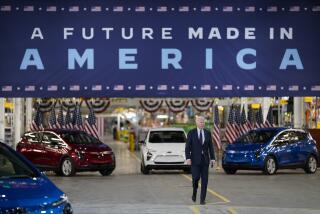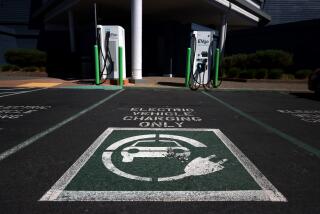Enforcing the Fuel Standards
The federal government didn’t act capriciously when it set future fuel-economy standards for cars a decade ago. The rules were based on what objective automobile engineering evidence indicated was achievable. Chrysler Corp., for one, has shown that the standards were sound. Its cars meet the 27.5-miles-per-gallon average fixed for 1985. But General Motors and Ford, for two years running, have not met the federal goals. Their failure, under the law, exposes them to stiff fines. Will they be forced to pay up? Almost certainly not. The signs instead are that a sympathetic Reagan Administration prefers to change the fuel-economy rule rather than enforce it.
GM and Ford blame the public for their problems. Buyers, it seems, have been showing a preference for the larger and less-fuel-efficient cars that the auto makers build and from which, not uncoincidentally, most of their profits come. Disappointing sales of the companies’ smaller cars, which may have something to do with what has been offered, have lowered the fleet average for the Big Two’s cars to about 26 miles per gallon. This is the maximum standard that GM and Ford want now and in subsequent years.
Chrysler, understandably, opposes the plea to reduce fuel-economy standards. Over the years it made the investment necessary to build more fuel-efficient cars, and now it sees itself in danger of being penalized competitively because it complied with the law. If Chrysler could do it, why couldn’t GM and Ford? And if GM and Ford didn’t do it, why should they be excused from the penalties that are the incentive to compliance?
The federal mileage standards have been among the most successful and beneficial examples of government regulation. They have saved consumers billions of dollars in gasoline costs and, by reducing the demand for imported fuel, helped force down oil prices. The national interest is best served by maintaining and enforcing the standards, not diluting them.






